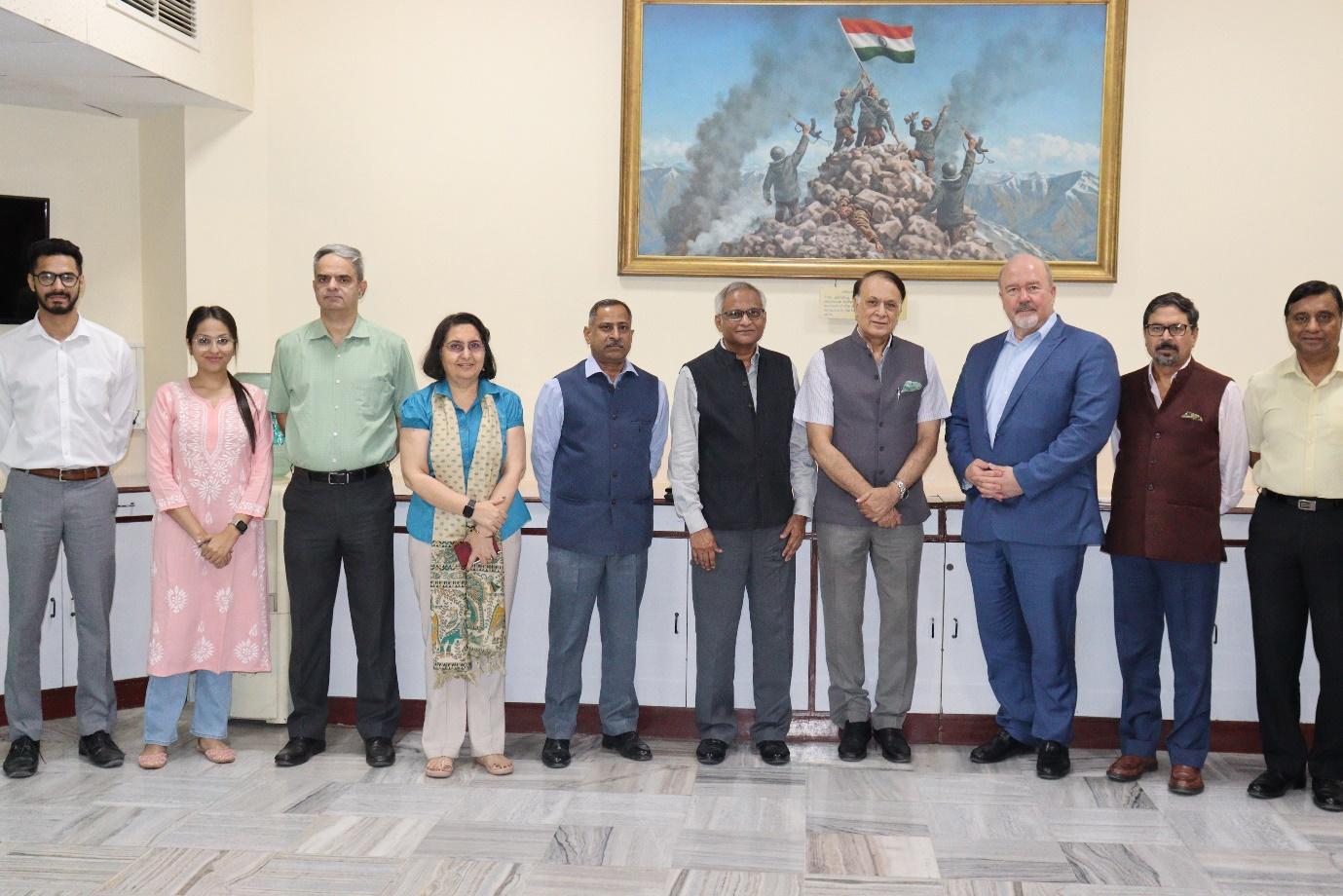ROUND TABLE DISCUSSION ON CHINESE MILITARY CHALLENGES 25 May 2023

Report
On 25 May 2023, the Center for Strategic Studies and Simulation (CS3), United Service Institution of India (USI) organised a Round Table Discussion on ‘Chinese Military Challenges’. Maj Gen BK Sharma, AVSM, SM and Bar (Retd) Director General of USI, delivered the Welcome Remarks. The guest speaker Mr Roy Kamphausen, President, National Bureau of Asian Research (NBR), spoke on the topic “Chinese Military Challenges’’. It was followed by remarks from the discussants - Maj Gen ND Prasad AVSM, VSM (Retd) and Prof Srikanth Kondapalli. The Closing Remarks was given by Maj Gen Bhaduria, VSM (Retd), Director, CS3.
Key Takeaways:
1. There are global shifts visible and Xi Jinping’s strategy is to achieve “the great rejuvenation of the Chinese nation’’ by 2049. There are various dimensions to this change like the Chinese leadership feels that time has come to change the international order as per Chinese objectives, further the CPC (Communist Party of China) observes that the size of their economy is growing leading to a rise in GDP as also the military power of PLA (People’s Liberation Army) is more effective, due to the modernisation process. However, there are challenges to this model. They believe that the possibilities of incursions have increased, as also there has been negative propaganda by the West. Further, there is a notable difference between the approaches adopted by the USA and China, if the former focuses on crisis management, then the latter just ignores the same.
2. The defence budget of China has increased to 7.2% under Xi Jinping leadership and is championing a more proactive foreign policy. The current leader is following the footsteps of Mao’s philosophy i.e. primarily focussing on national security than economy. Looking at the current scenario, India and China should have some measures on escalation control specially after the Galwan clashes. There should be engagement of high-level defence meetings and de-escalation mechanisms planned on both the sides of border.
3. However, China changes the status quo very often which results in clashes. The issue of unsettled border has always been a cause of worry but with time both the sides are trying to engage on border through dialogues. The signing of iCET between India and USA to elevate and expand the strategic partnership and defence cooperation has been valuable. Hence, the need of the hour is to ensure credible deterrence to avoid miscalculations and to connect at strategic levels.

Panelists

Round Table Discussion on "Chinese Military Challenges''

Token of Appreciation

Group Photograph
Report by Ms. Tanya Jain
Research Assistant
CS3, USI










